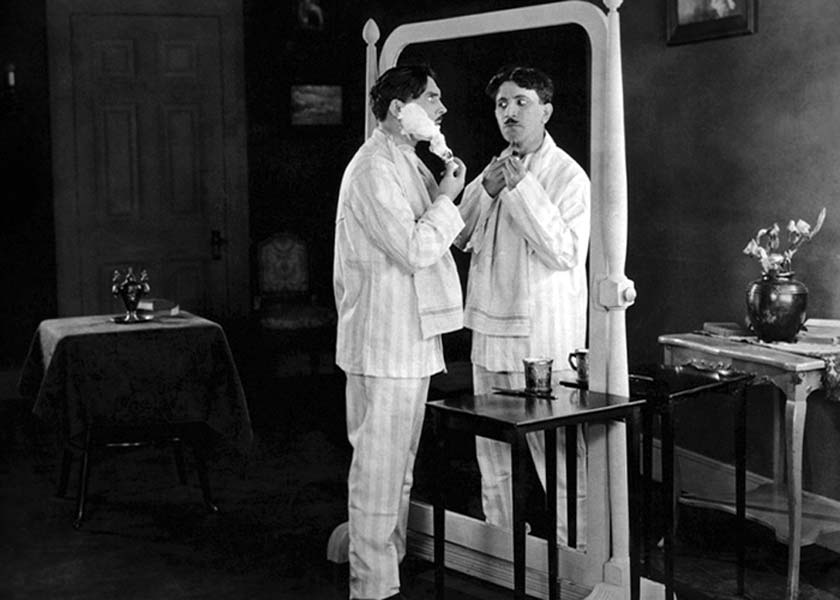Synopsis
Max (Linder) comes home drunk from his bachelor party. He staggers up his stairs and falls off the stoop before getting in the door. In his bedroom he throws his clothes out the window and throws milk on the clothes in his closet. In the morning, he is hung over. His servants break his mirror and hide the broken pieces from Max. His cook dresses to look like Max and, standing on the other side of the broken mirror, mimics his every move. After the mirror is repaired, Max breaks it again and fears that he will have seven years of bad luck. After dressing Max goes to meet his fiancée Betty (Allen).
Attempts to take various modes of transportation seem to be jinxed, and he walks to her house. Max and Betty argue, and she returns his ring. He leaves the city on a train. At a stop his wallet is stolen, and Max has to fool the conductor in order to stay on the train. Max causes chaos on the train and is arrested and taken before a judge. In the meantime, Max’s false friend (Crayne) proposes to Betty, and, to spite Max, she accepts. They and Max appear before the same judge. As the judge is about to marry Betty and the false friend, Max intervenes. Max wins back Betty, and the judge marries them.
Discussion
Max Linder, a famous comedian in Europe, made
Seven Years Bad Luck and two other films (Be My Wife and
The Three Must-Get-Theres) during his second attempt to establish
himself in America in 1921-22. None were successful, and he returned to France. A
viewing of Seven Years Bad Luck affirms Linder's self-assessment
(made to Robert Florey) that audiences find his situations
no more than
mildly amusing.
Linder has good ideas, but he achieves only mild comedy
with them. The human mirror
joke, making one of its earliest appearances on
film, is carried off smoothly and brings on smiles, but does not contain the
laughter-inducing interactions of, for example, the Marx Brothers' immortal
version of the routine.
Further Reading

